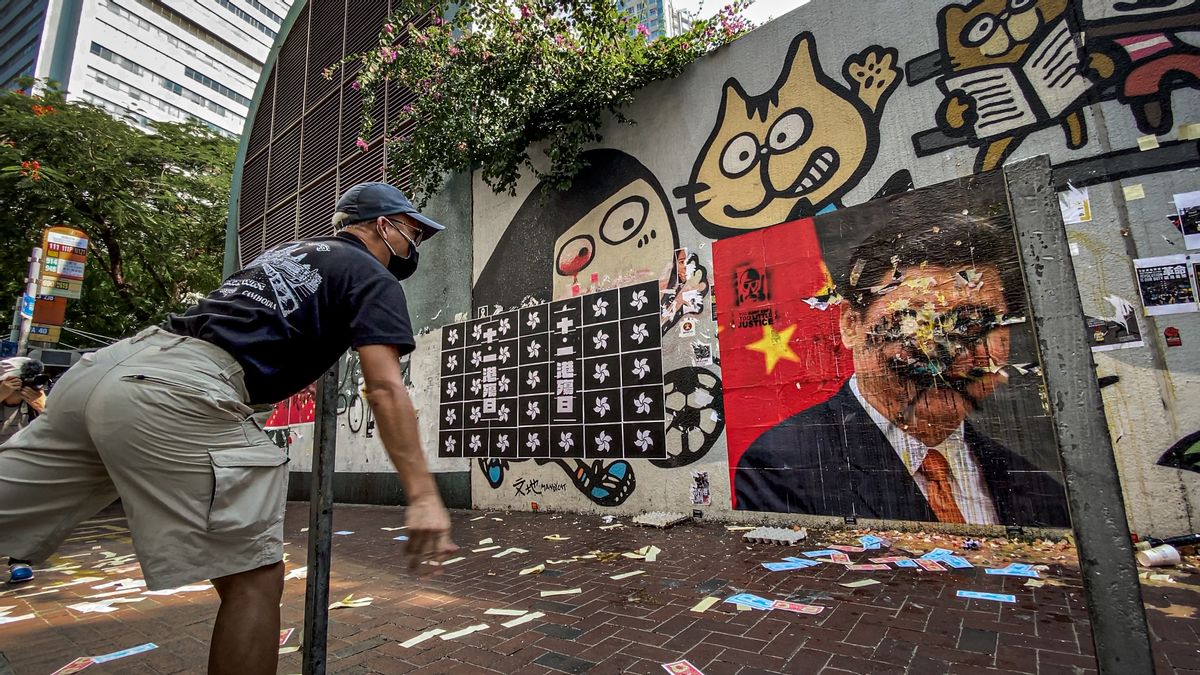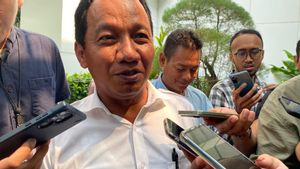JAKARTA - COVID-19 has not prevented China from pursuing an agenda of reunification with Taiwan. Authorities in mainland China are leveraging cyber technology to campaign for the agenda. Live broadcasts, video conferences, and video making competitions were held.
Launched by Reuters on Friday, July 10, China is working intensively to win the hearts and minds of the people in Taiwan. Democratic Taiwan is known to provide broad support for anti-government and opposition participants in Hong Kong who are facing the injustice of the National Security Act.
Taiwan is China's most sensitive territorial issue. The Chinese government claims the self-governing island is part of China. Not reluctant, they will take Taiwan by force if necessary.
Many Taiwanese then trace their ancestry to mainland China, to see cultural similarities with the Chinese. However, after doing some tracing, most Taiwanese people don't want to be ruled by autocratic China.
China has long sought to win over Taiwan, where defeated Nationalist forces fled in 1949 at the end of the Chinese civil war. China often provides summer programs at low prices for young Taiwanese.
They also provide tours to show roots and other schemes that drive the message that Taiwan will be better off under Chinese rule. Taiwanese are asked not to worry about the unification agenda.
Social mediaWith normal travel suspended, China is now turning to the internet to continue this campaign. In June, many Taiwanese families joined a gala held in Fuzhou City, Southern China.
They do this via video calls to celebrate the traditional Dragon Boat Festival. Chinese state media described the event as an attempt to enhance the "ancestral identity of Taiwanese youth" and "express the desire for eternal love in the Taiwan Strait."
A video contest with the theme of "breaking down the barriers created by the virus" is now being advertised to high school students in Taiwan. "The epidemic has cut the mountains from the sea, but it cannot cut the longing to go home," read a poster at a competition co-organized by the Chinese Communist Party's youth group based in Fujian Province.
Taiwan's responseAn internal security report said the move made it even more difficult for Taiwanese authorities to track down who was involved in the campaign. Other reports also said social media platforms, including TikTok and Instagram, have been used to "captivate interactions" with Chinese youths.
If that campaign continues it could lead Taiwan into a new national security crisis. "They have been instructed to expand their live broadcast and video conferencing efforts," said a Taiwanese security official investigating the matter. "They want to increase the good image of China."
Security officials said the virtual campaign was initiated by Chinese agents, including the Taiwan Affairs Office and the Work Front Department. They are tasked with co-opting Chinese and non-communists who are abroad.
However, online steps may not be as effective as a physical encounter. But the face-to-face approach is likely to start in China as soon as travel permits re-open.
"It's harder to convince people without really seeing what is being offered," said another security official.
About 27 percent of the people in Taiwan support formal Taiwan independence. That figure is a record high, in contrast to 0.7 percent who want to join China, according to a poll by National Chengchi University in Taipei. Yet the majority of people surveyed prefer to maintain the status quo.
The English, Chinese, Japanese, Arabic, and French versions are automatically generated by the AI. So there may still be inaccuracies in translating, please always see Indonesian as our main language. (system supported by DigitalSiber.id)









